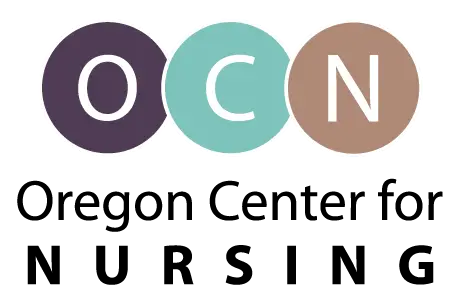
The year 2020 was supposed to be about a lot of things—the start of a new decade, the Year of the Nurse and Nurse Midwife, the Summer Olympics, and the presidential election. Only three months into the year, the COVID-19 pandemic drastically changed the world. As healthcare professionals and policymakers work with the public to flatten the curve, communities, organizations, and experts, uncover system flaws, design new approaches, test long-held assumptions, and navigate healthcare in new and changing ways.
The Oregon Center for Nursing (OCN) continues to connect with policymakers across the state and healthcare providers in a variety of care settings during the pandemic. As we continue to monitor the spread of COVID-19 and the state’s response, we’ve identified several powerful concepts:
Power of Data
In the case of COVID-19, emergency planners immediately needed reliable data on the supply of healthcare professionals at a regional, community, and organizational level. How many healthcare providers do we have? How many will we need? What skills will they need? How do we find more?
The COVID-19 pandemic highlighted how workforce data can be used to understand and mobilize a profession. It has also reinforced the disparity in data availability across professions. While information on the pipeline and supply of nursing professionals in Oregon is readily available, information on other health professions can be harder to locate. As the COVID-19 pandemic crisis peaks, organizations should consider how internal and external data can continue to shape their workforce planning.
Power of Connection
Information is a critical commodity in these rapidly changing times. From the beginning of the pandemic, OCN recognized that nursing leaders and stakeholders needed a way to share information and strategies to navigate the COVID-19 pandemic. Our weekly Friday Huddles became a way to gather leaders, identify issues, and share emerging solutions across regions and systems.
Organizations across the state and nation collaborate and share best practices at lightning speed as they respond to the pandemic. As we contemplate life A.C. (anno Coronavirus), connections reinforced during this crisis will continue so the nursing community can work on strategies to address transition-to-practice, nurse retention, and other issues facing the profession.
Power of Disruption
The COVID-19 pandemic has created unique challenges for the nursing pipeline and workforce. The cancellation of in-person classes and clinical placements for nursing students has programs across the state exploring new education delivery models. Healthcare organizations are finding ways to mobilize staff to meet the needs of COVID-19 patients while simultaneously furloughing workers as canceled elective surgeries and low census numbers affect staffing needs.
While these situations have created stress and hardship, the disruption has also provided a unique opportunity to look at ways to transform nursing education and workforce staffing. Hospitals are testing out new models of care to involve more nurse practitioners. Education programs are expanding their use of simulation and virtual learning technologies. Organizations are modifying and expanding residency programs to cross-train and transition nurses to work in new areas. Some tools and transformations used to navigate the COVID-19 pandemic may find a permanent place in the nursing workforce.
When the COVID-19 crisis subsides in Oregon, many will be tempted to get back to business as usual. We hope to continue building off the many macro- and micro-lessons and improve nursing education, workforce planning, and collaboration.
Nursing is a powerful profession bearing witness to history. In this International Year of the Nurse and Nurse Midwife, may we embrace the power of the pandemic and recognize the opportunities it creates for nursing and healthcare transformation.

